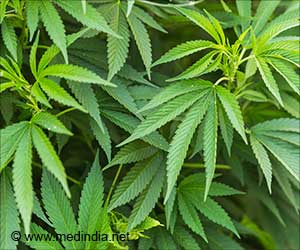A new study from Brigham Young University has revealed that teens’ religious faith can reduce the risk of marijuana use by half.
A new study from Brigham Young University has revealed that teens’ religious faith can reduce the risk of marijuana use by half.
The research team has found that religious involvement makes teens half as likely to indulge in drug abuse."Some may think this is an obvious finding, but research and expert opinion on this issue have not been consistent," said Brigham Young University sociology professor Stephen Bahr and an author on the study.
"After we accounted for family and peer characteristics, and regardless of denomination, there was an independent effect that those who were religious were less likely to do drugs, even when their friends were users," he added.
They also found that individual religiosity buffered peer pressure for cigarette smoking and heavy drinking.
The term religiosity used in the study has to do with people''s participation in a religion and not the particular denomination.
The protective effect of church and spirituality supplements the influence of parents.
The researchers reviewed the data of 13,534 students who participated in the National Longitudinal Survey of Adolescent Health and 4,983 adolescents in a statewide survey of Utah schools.
"Meaning if you are religious, the pressure from peers to use drugs will not have as much effect," he added.
However, religiosity didn’t have the same effect on use of illicit drugs such as cocaine and heroin.
"There are pretty strong social norms against illicit drugs throughout society," Bahr said.
"So even if you aren''t religious, you receive many messages against illicit drugs. But that may be less so for drinking, smoking and even using marijuana, which tend to be strongly opposed by many religious groups," he added.
The study appears in the Journal of Drug Issues.
Source-ANI
SRM
 MEDINDIA
MEDINDIA




 Email
Email







